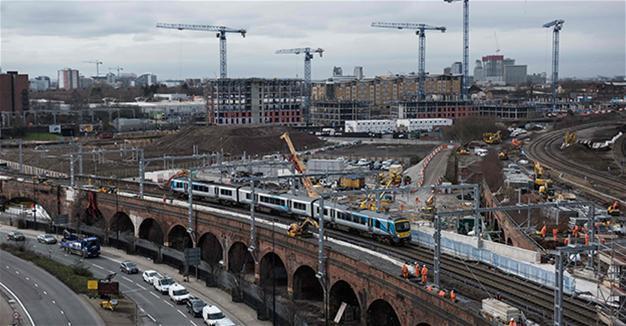London finance chief upbeat after Brexit trigger
LONDON - Agence France-Presse

AFP photo
The outlook for London’s financial sector has improved since Brexit was triggered, insists the man charged with its policy, even as banks remain set to move some jobs abroad.
Mark Boleat, who spoke on Thursday to AFP after British Prime Minister Theresa May activated the process for Britain’s EU exit, nevertheless urged speedy trade talks to minimize disruption.
The signing of Article 50 of the Lisbon Treaty late last month has kick-started a two-year countdown to Brexit.
“On the whole, I think things are looking rather better,” Boleat said when asked about the impact on London’s financial sector, otherwise known as the City.
“We would hope that the negotiations go quickly and go well,” he said.
If early agreement could be reached on the terms for exit and on the rights of EU nationals, “there will be the minimum of disruption to business and consumers in this country -- and in Europe,” said Boleat, who steps down next month as policy chairman of the City of London Corporation.
Bank of England chief Governor Mark Carney on April 7 warned of sector-wide consequences of leaving without a trade deal, but was optimistic for an agreement.
In the run-up to last year’s Brexit referendum, the business community threw its weight behind the failed Remain campaign, arguing it would prompt large-scale City job losses.
So far, HSBC has stated it would likely shift 1,000 jobs to Paris, where the banking titan already has a significant operation.
U.S. player Goldman Sachs will meanwhile move 1,000 staff from London to Frankfurt.
Boleat sought, however, to calm jitters over banks shifting jobs to other major European hubs.
‘No closing down in London’
“Banks have had contingency plans since before the Brexit referendum in some cases. They have known there is a possibility that Britain will not be in the single market -- that has now been confirmed.”
Many banks “will need to restructure what they are doing -- perhaps cease doing a few things, in some cases build up business elsewhere in the European Union. They are getting on and doing that.”
And he cited U.S. investment bank JPMorgan’s chief executive Jamie Dimon, who stated this week that he did not foresee shifting many staff from Britain over the next two years because of Brexit.
“I don’t think businesses are going to announce what they are doing in a great fanfare,” Boleat said.
As executives such as Jamie Dimon had pointed out, “we are going to need to build up our resources in other EU member states.”
A few people would be moved, but “no one is going to say: we are closing down in London,” he said.
Lloyd’s of London’s Brussels move
Historic insurance market Lloyd’s of London was the first group to respond to the Brexit trigger, announcing it will open a Brussels subsidiary in early 2019.
The market, which insures against catastrophes such as earthquakes, shipwrecks and revolutions, is seeking to ensure its continued access across the bloc.
Lloyd’s is “a unique organization. It’s not a company, it’s a market. They will have to do something if Britain is outside the single market,” Boleat told AFP.
“They have spent a long time looking at location. They have decided it’s Brussels.”
But that was only part of their business, he said.
“It’s Lloyd’s of London. The vast bulk of its business will stay in London. It will not be Lloyd’s of Brussels,” the departing policy chief added.
Euro clearing ‘should remain in London’
Boleat also argued that the future location of euro clearing -- the processing of euro currency transactions -- should remain in London.
France has been particularly vocal that other EU hubs should be ready to take over from London.
“The clearing is done in London because that is where the expertise is. That’s where the market is. Brexit will not change that,” Boleat said.
“Euro clearing is already a political football -- but we hope that economic reality will determine the outcome, not a wish to have a trophy function move to another place.”
